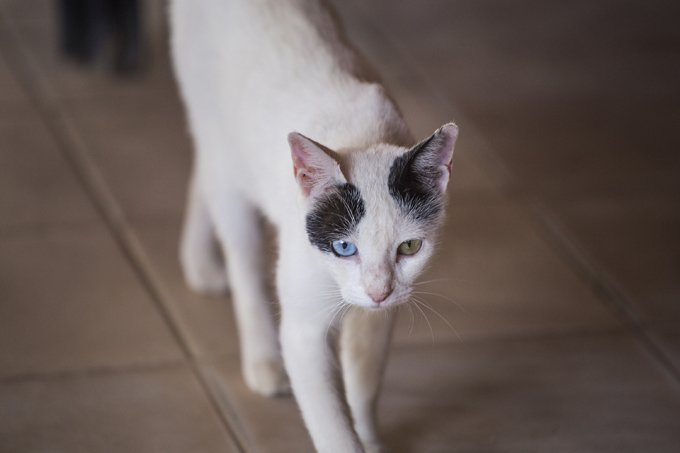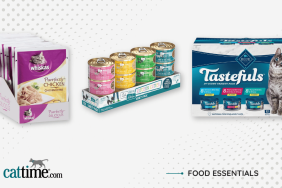Question:
My 12 year cat is losing weight, so I’ve been giving her extra food. She eats all of it and begs for more, but she isn’t putting the weight back on. In fact, she might even be getting skinnier. Lately she’s been vomiting also. What should I do — change her diet?
Answer:
Before trying new food, see your veterinarian! Normally, getting a cat to shed pounds is a slow and challenging process. I would be concerned that your cat may have an underlying medical problem — some of the more common causes of weight loss in senior cats include chronic kidney disease, diabetes, hyperthyroidism, and intestinal cancer.
The symptoms you describe are suspicious for hyperthyroidism, a disease usually caused by a benign tumor of the thyroid gland. This tumor triggers increased production of thyroid hormones. Since the thyroid gland regulates many aspects of the body’s metabolism, excessive thyroid hormone over-stimulates multiple organ systems, leading to symptoms such as rapid heart rate, weight loss, and increases in appetite, thirst, and activity.
Of course, not all cats show the typical signs, and some cats with these symptoms may not have hyperthyroidism — blood work is needed to make the diagnosis. After performing a physical exam, your veterinarian will check a blood chemistry panel, urinalysis, and a thyroid hormone level. Most cases of hyperthyroidism can be confirmed with these tests, although a small percentage will require additional testing.
Once hyperthyroidism is confirmed, there are several treatment options: medication, radio-active iodine therapy, and the newest option, prescription diet. (Surgical removal of the thyroid glands is also an option, but is done much less commonly these days.) Each has its pros and cons; the best treatment for a particular cat depends on her overall health and home environment.
Oral medication is affordable and easy to obtain, but lifelong treatment is required, which can be difficult in cats who resist taking pills, and some cats experience side effects. Radio-active iodine therapy is generally a one-time, curative treatment, but requires travel to special treatment centers, and cats with other health problems may not be eligible for treatment. Dietary management works through significantly reducing iodine intake, so you must restrict your cat’s diet to the prescription food ONLY, no exceptions.
Talk to your veterinarian about which options are best for your cat — and don’t delay seeking help. Hyperthyroidism is a manageable problem, but potentially fatal if left untreated.









